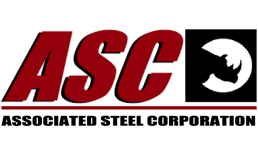Recently we touched upon blanket orders. Today, we are going to look at them specifically as to how they might relate to inventory management.
So, my favorite cautionary snippet warns about “Not shooting pool with anyone who’s first name is the name of a major city.” To an extent, there is wisdom in that. Unless of course you’re THAT GOOD! And, most of us are not.
When it comes to the idea of keeping steel in inventory, there is another snippet that suggests; “Better that you be stuck in an elevator with 50 first graders with fevers, ice cream cones, and intestinal flu, than hold steel bars as inventory.” Doesn’t seem to leave much room for any discussion. Just don’t do it, at any time, for any reason. That used to refer to slow-moving inventory. Today, however, it seams to refer to any inventory, no matter who you are; service center, end-user, manufacturer.
In a nutshell, no one is to maintain any inventory, but everyone is expected to ship their products next day. In reality, that philosophy results in what I refer to as “kick the can”. Someone has the inventory somewhere; we just want it to be someone else’s expense. Inventory is a necessary evil then, so long as someone else is carrying it. Or, as an old and dear friend of mine would always say; “Somebody pays!” Just move the actual mass of hard steel down the line until it is not so visible. BUT, how many decision makers do you want to be between your “Just-in-Time” company and availability of the actual goods? There is no avoidance; to deliver products with the speed expected today, most of us should actually maintain some inventory (that includes end users, manufacturers, and even service operations). We just need to insure we are capable of managing that inventory with a competence that approaches an art-form level.
Heavy industry is alive and well. Globally, there is a big need for digging, busting, breaking, grinding and pushing; dirt, rocks, yogurt, whatever. Service centers are tasked with anticipating the needs of that industry months or years ahead of potential orders. No easy task. End users, however, may witness repetitive usage of materials within somewhat predictable cycles. They enjoy a level of “forecast insight” that steel service centers would love to have, no matter how slight it might be. Yet fewer than you would imagine utilize the benefits of a useful and available inventory management tool; “Blanket Orders”.
Committing “forward”, to a dedicated source of supply, for a dedicated quantity of material, may be facilitated by using a blanket order. Not a bad compromise that protects continuance of supply and improves cash flow.
-Howard Thomas, January 21st, 2020
The “partnering” discussed here, in the steel industry, will refer to a working relationship between supplier and end-user, where benefit is derived by both parties.
One specific example that has been very effective is the blanket order, or blanket contract. Both parties need the potential advantages of a well-constructed blanket contract.
The vendor gets a bit of predictable inventory usage and potential predictable cash flow. The customer will benefit from: continuance of supply, firm pricing, cash flow (often a major concern in smaller mom and pop service centers), time and space savings, etc. When one of these “Partnering Contracts” is done well (fairly), there may even be cost savings to the customer, and increased profit to the supplier. Other benefits do not necessarily relate solely to purchase cost.
At risk for the vendor is default from the customer who’s needs may change during the tenure of the contract. A smaller service center may be concerned with exactly the same thing; a change to their customer’s needs mid-stream.
If you have never been party to a blanket contract for materials, you should be aware that there are certain predictable cautions and time proven verbiage common to most blanket contracts. The text will address standard issues like duration of contract, types of releases (fixed or “as-needed”), etc. Persons with limited familiarity, or who have never entered into a Blanket Order will likely have many concerns relative to over-committing, potential exit clauses, etc. You should know, that similar to any type of contract there must be benefit for both parties. There is no “one-size fits all” contract.
Working with a familiar and trusted vendor and extensive COMMUNICATION will only improve the quality of any joint agreement. Formulate a rough draft of contract terms that express, and address, your concerns. There are no predetermined constraints or requirements that you will be bound to. Ensure the contract terms fit both parties.
In an earlier post, we discussed the definition of, Random Bar Lengths. Many people in this industry assume there is a fixed length spread. Not so. Bar length variances are basically determined by each supplier based on length variances that offer advantages. In appreciation for selling lengths that are the easiest and most economical to ship, a cost advantage is passed along to the customer. Look at a blanket contract in the same way. In your particular situation, what issues provide advantage? Would a good “escape clause” ease your concerns? What about an extended contract period, or releases on demand?
Blanket Contracts for Materials are an excellent form of “Partnering”. They should be viewed as opportunities, not restraints. When discussing “Partnering” be open to compromising on terms that will assist you in perhaps obtaining some “non-standard” terms that you feel strongly about.
The beginning of a new year is a great time to get dialog started.
-Howard Thomas, Jan 2nd, 2020
Is all 4140 alloy steel the same?
It is common for 4140 alloy steel to be supplied in either the annealed (soft) condition, or Quench & Tempered (Q & T), the hardened condition. The hardened condition is used where added strength or resistance to wear is desired. The softer condition is used where considerable machining may be required, or where more ductility is required. And then of course there are different surface conditions, shapes, etc. What we will be addressing here will be something a bit less obvious.
Quality varies from mill to mill, and within even one mill, quality will depend on the specification the customer is having it made to. The number one cause of shaft failure in heavy industry is fatigue related failure. “Toughness” resists fatigue, and “cleanliness” increases toughness. Cleanliness in steel is a result of refinement process incorporated in the melting of the steel. (electric furnace melt, vacuum degassing, small grain refinement, etc.). Each process may contribute to the quality of the steel. Each has a cost to the service center requesting it. When all of the available cleanliness processes are incorporated, the collective cost of those extras could be near, or may even exceed the base cost of the steel grade.
I have always considered the steel making process to be more of an art form than merely a manufacturing effort. Very much the same as; there are certified welders, and then there are certified welders. There is often a big difference from one to another. Or, as the age old adage points out; “What do you call a doctor who graduates last in his/her class? The answer is still Doctor. It is the same with steel; who makes it and how is it made?
Often, we encounter a situation where a grade of steel has failed in service. It is common for the customer to consider changing the grade of steel. In many instances it would be more appropriate to retry the recommended steel again, but perhaps investigate purchasing from a higher quality resource.
If you believe on specific grade of steel has identical attributes to that same grade from any source, you are likely to encounter some surprises along the way. Don’t get bit by an insufficient piece of steel because you misunderstood the situation.
“A man walks up to a woman waiting at the bus stop. Next to her is a large friendly looking dog. The man asks if her dog bites. She smiles and says, “No. He is very friendly and loves people.” The man reaches to pet the dog and is immediately bitten. “I thought your dog didn’t bite!”, he exclaims. “That’s not my dog.”
An old experienced business associate of mine would often comment on something I did that did not come out as planned. He would simply say; “Well kid, you almost had it right.”
Don’t be that kid. Pay attention to the details and make your life easier.
-Howard Thomas, Nov 25th, 2019
Click here to add your own text
Associated Steel Corporation reserves the right to delete comments that contain vulgar language, personal attacks of any kind, or offensive comments that target or disparage any ethnic, racial, or religious group. Further Associated Steel Corporation also reserves the right to delete comments that are: spam, advocates illegal or unethical activity and infringes on copyrights or trademarks.
Click here to add your own text
Howard Thomas
Experience
Sr. Acct. Mgr. (US Southwest) / Metallurgical Consultant
Associated Steel Corporation
Jan 2017 – Present
Past Vice President / General Manager
Associated Steel Corporation
Apr 1998 – Jan 2017
Past Vice President / General Manager
Baldwin International
Apr 1974 – Mar 1997
Education
Cleveland State University
Kent State University
University of Denver

